Hosting a Gluten Free Foreign Exchange Student
As an Amazon Associate and member of other affiliate programs, I earn from qualifying purchases.
Curious about hosting a Gluten Free Foreign Exchange Student? Get answers to many FAQ in my latest blog post. I’ve tried to answer as many questions as I can think of, so it’s a bit long. Therefore, use the table of contents below to jump to the section you’re most interested in.
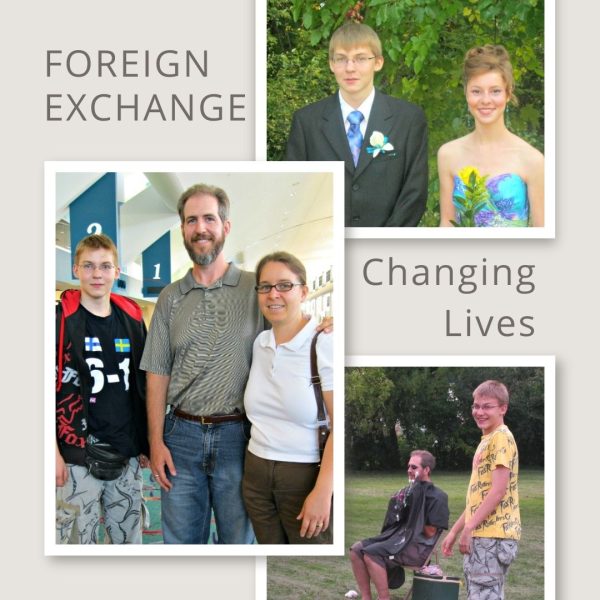

Margaret’s Background with Gluten Free Foreign Exchange
My husband and I hosted Daniel, a young man from Finland, many years ago. Daniel lived with Celiac Disease and Type 1 Diabetes. As my husband and I had no children of our own, we were excited to host a teenager in our home.
While our experience wasn’t perfect, I still highly recommend it to anyone. I learned so much about Finland and Type 1 Diabetes. All these many years later, I’m still in touch with Daniel’s mom over social media.
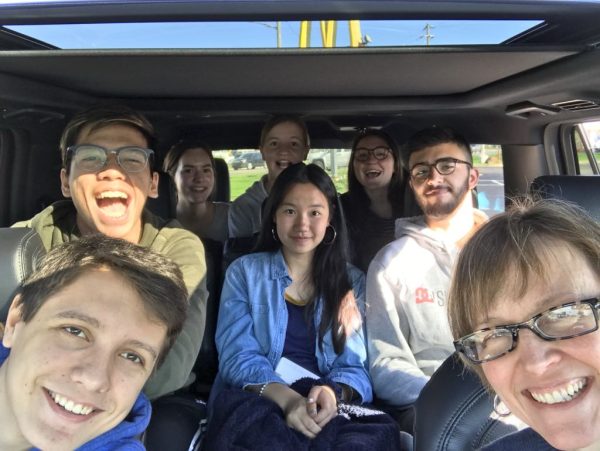
Karen Rohwer Joseph’s Experience with Foreign Exchange
My friend Karen has experience with both sides of Foreign Exchange hosting. Not only has she hosted students in her own home, but she has been a coordinator for finding housing for other students. (Learn more about Karen in my Interview with GF Experts series.)
As Karen shared with me “If I weren’t involved with so many happy experiences, I wouldn’t have stayed in this position for seven years! The enrichment to my life, as well as that of the international students and their host families, is what an amazing cultural exchange is all about.”
Below is a Q&A between Karen and I. Hopefully it answers any questions you may have about hosting a Gluten Free Foreign Exchange student. For reference, she works for ASSE International Student Exchange Programs.
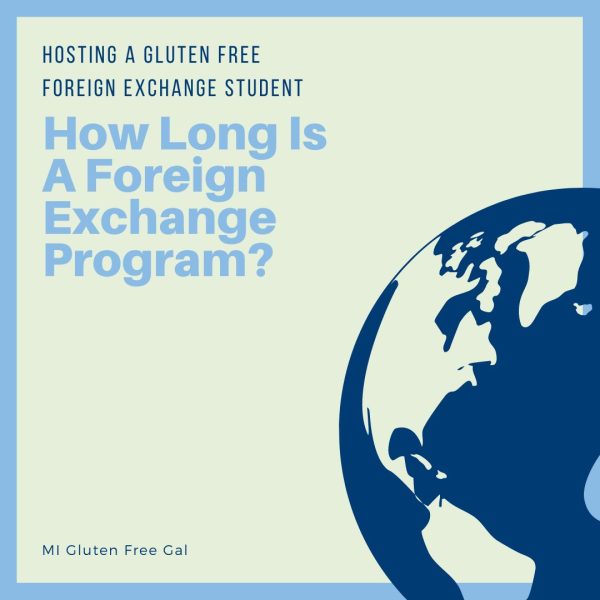
Are All Exchange Programs a Year (10 months) Long?
No. The majority of ASSE students come for the school year but we do have kids that just sign up for a semester. However Karen notes that often “one semester” students end up enjoying it so much that they want to extend to a whole year.
Margaret notes that there are some foreign exchange agencies that offer a short summer visit. Margaret’s cousin used to work with Greenheart International. They offer shorter 1 – 2 month experiences. These summer experiences do not include schooling.
Specialty Exchange Programs – FLEX and YES Programs
FLEX and YES programs last a standard school year. However these students have met some additional criteria. Both programs were created by US Congress years ago. They offer full scholarships to outstanding high schoolers with excellent grades and a good foundation of the English language. They undergo many rounds of screening. Only 2.3% of applicants ultimately get these scholarships.
Karen shared that these are her favorite students to work with because they work so hard for this opportunity. They tend to be quite knowledgeable. As a FLEX and YES leader, she makes sure that these kids have additional enrichment activities.
U.S. Department of State’s Future Leaders Exchange (FLEX) program
The FLEX program (“Future Leaders Exchange “) was created 30 years ago in the wake of the collapse of the Soviet Union. It was intended to aid this process by bringing these talented high schoolers to the US to be immersed in our country.
During that time, ASSE exchange students are involved special leadership projects on our democracy and diversity. They also volunteer 50 to 100 hours in any organizations of their choosing. These kids also act as ambassadors of their own countries. They are required to do 3 country presentations. Getting to know a Ukrainian student for example, adds context to a foreign war.
U.S. Department of State’s Youth Exchange and Study (YES) program
The YES program was created after 911 by senators Kennedy and Luger. It was intended to build bridges and increase understanding between countries with a significant Muslim population. YES students engage in community service and civic education activities. That said, the kids from these countries are usually Muslim, but not always. Some practice their religion, some don’t, and some are even Christian. The main goal is to build bridges between people.
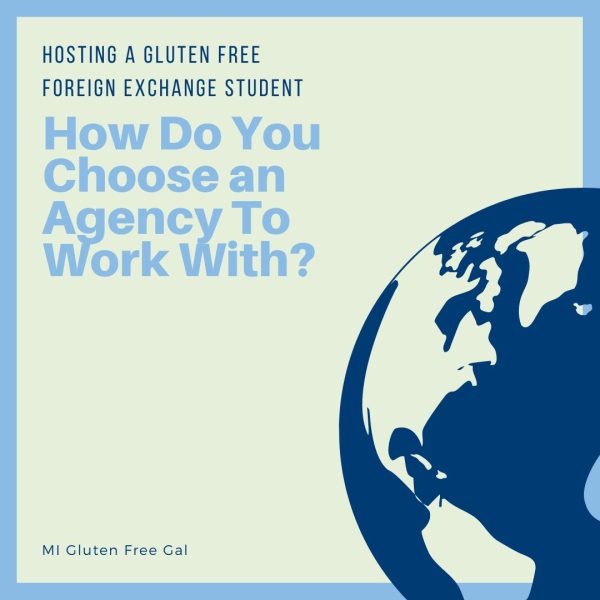
How Do You Choose a Foreign Exchange Agency to Work With?
There are many agencies that coordinate and oversee high school student exchange programs.
Make sure any agency you work with is CSIET Certified. This stands for “Council on Standards for International Educational Travel.” You can learn more in this PDF about Student Safety Guidelines on their website.
After that, choosing an agency mostly comes down to your local support person. You need to know they will be there for you.
You can also set up a foreign exchange program thru the U.S. State Department.
Does The U.S. Government Oversee Foreign Exchange Agencies?
As a prospective host family, you should know that high school exchange programs are overseen by the U.S. Department of State. They audit agency records to ensure that they’re doing their jobs. This includes requiring workers receive an annual training and also require that workers certify on an annual basis to ensure that they understand the state department rules.
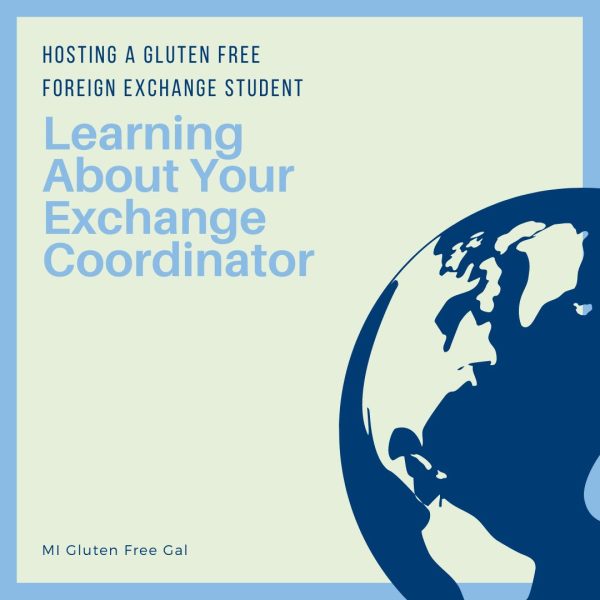
How Do You Vet an Agency Representative?
Karen suggests that you should feel free to ask your agency representative questions! Some of them might include the following:
- How long has the agency been in business?
- Why did they decide to become an exchange representative?
- Do they have any previous experience working with kids/ teenagers? (Former teacher, social worker, etc?)
- How long have they been with the agency?
- If they’re brand new to this job, do they have someone who is mentoring them?
- How many students have they placed in the past?
- Do they have experience placing students with dietary restrictions?
- Feel free to ask for a couple references from previous host families!
Do Coordinators Get Paid to House Students?
Representatives receive a stipend for each student placed. At ASSE, they receive this in installments based on completing their requirements (3 activities, monthly documentation, orientations, etc.) However, money alone should not be the motivation to work in this job.
If your coordinator/area representative offers several activities and / or an overnight trip, you know that coordinator is all in!! These activities involve hours of planning and go beyond basic requirements. A good coordinator needs to have a passion for doing this!
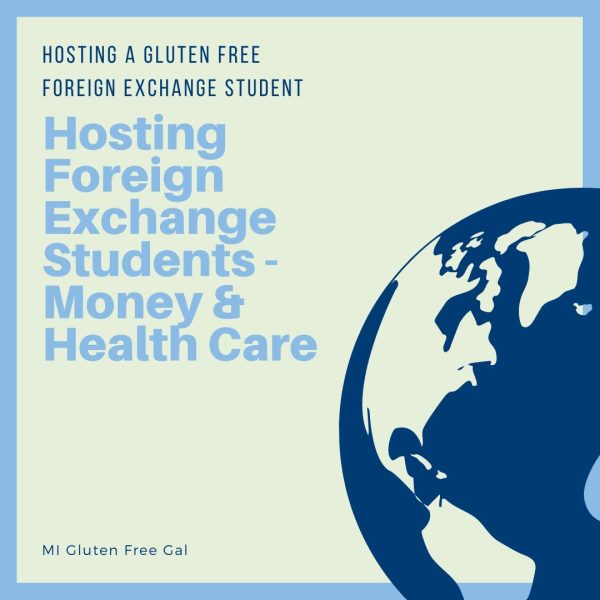
Do Host Families Receive Financial Compensation for Hosting?
Host families do not get compensation. (It would violate the rules of this type of exchange program actually). There are other exchange programs that have another structure. Instead of coming on a J1 visa, I think the students who come on an F1 and can stay for more than one year, even multiple years.
Do Students Come with Money? Do Host Families Pay for Everything?
Families are only responsible for costs related to feeding and housing the student. If a student chooses to eat out with friends, they cover that with their own funds. Typically, the students “natural parents” as they call it in our agency, provide monthly funds to their son / daughter via a reloadable credit card.
Our students bring monthly funds to cover their own entertainment, sports, activities, personal care items and more. If you have a vacation planned, you are welcome to bring your student along or we can help you coordinate alternate arrangements during your absence.
What About Health Insurance? Do I Add the Student to My Policy?
Health insurance is provided to exchange students so the host family assumes NO medical costs, should any arise. Margaret can speak with experience on this topic. “When we hosted Daniel, he ended up in the hospital due to complications from his Type 1 Diabetes. We never paid for a single hospital bill.”
All students are issued a travel health insurance plan for the school year. It’s included in the program. At ASSE, we provide information about how it works during the host family orientation — and in depth during the student orientations.
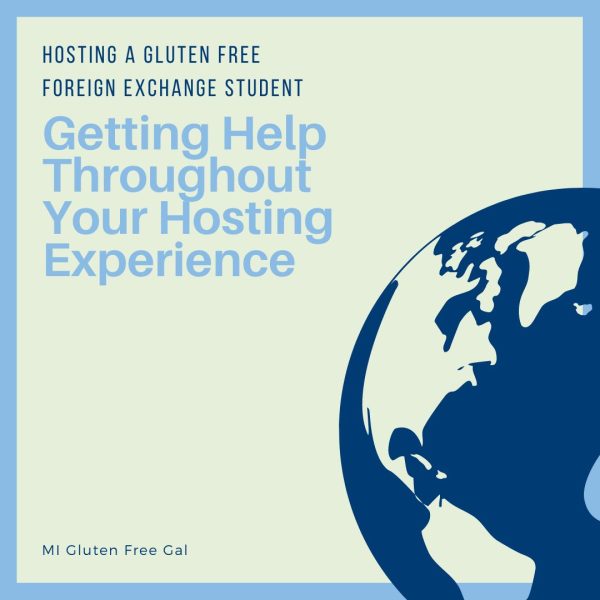
What Training Is There for Prospective Foreign Exchange Host Families?
At ASSE, host families are provided with an orientation from their coordinator prior to the arrival of their student. This includes information on cultural adjustment, program rules and health insurance so that they feel prepared for the experience ahead. Exchange students also receive an orientation from their area representative/ coordinator within two weeks of arrival. This is in addition to pre-departure orientation in their home countries so the students are well prepared.
What Help Do Host Families & Students Receive Throughout the Year?
Hosting a student extends well beyond the process of being matched to a student. Area representatives / coordinator are required to contact the student and host families separately (by phone or in person) each month throughout their stay. (Texts alone are not enough.) Agency support is always just a phone call away, 24/7.
Additionally, ASSE students are required to attend at least 3 activities with their area representatives/ coordinators during the exchange year. Ideally, these activities are enriching in nature (going to a museum, an Escape room, or a festival, for example) and involve other exchange students. It’s valuable for these kids to get to know others from around the world!
What Do We Do If The Foreign Exchange Student is Not a Good Fit?
Most experiences go very well. Know that you are not required to keep a student all year if they’re not a fit for your household. Host families are volunteers and as such, this is meant to be an enriching experience for them as well as the student!
An active area representative/coordinator will be available to support the family, provide ideas to improve communication, work directly with the student and move them to new home if this is the best resolution. Thankfully this isn’t a routine occurrence!
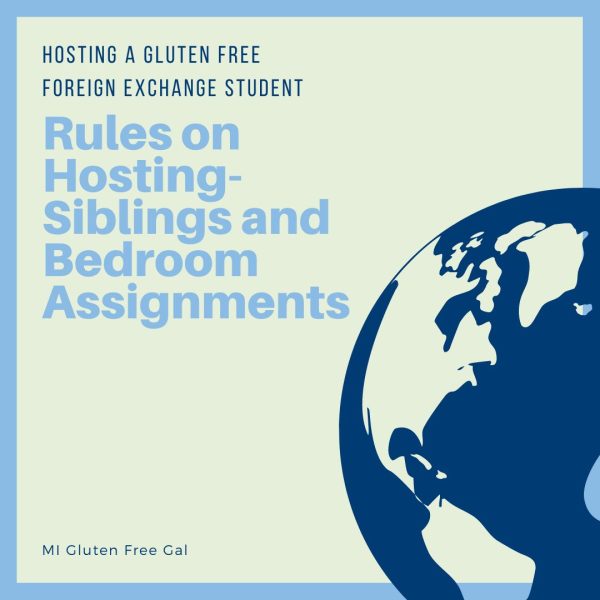
Are There Rules on Who Can Host?
Any families can host. The only special rule at ASSE is that a single adult who lives alone must take two students so it becomes more of a family situation. (If the adult has a roommate or another person in the household, the rules are different.) Karen has “empty nesters” and couples who have never had kids. Families with kids in college and families with babies and toddlers can also host.
Probably one of the biggest misconceptions is that you have to have a teen at home — or it’s best to have a teen. That’s just not true. We study the kids profiles for clues when matching them up to a household.
What About Bedroom Arrangements?
A lot of people automatically assume that a student needs to have their own bedroom, but that isn’t the case. However, there are rules about sharing a bedroom. ASSE guidelines state that students can share a bedroom with a same gender host sibling if they are within four years of age of the student.
Do I Have to Live in a Big City?
When hosting a student, you can live anywhere. However, when hosting a gluten free foreign exchange student, it may be helpful to live in or near a city with gluten free dining options. When we hosted Daniel, it was a shock that we had so few gluten free options in the greater Flint area.
Then again, Karen thinks this is not necessary. She shared about a young girl in a VERY rural small town with few gluten free dining options locally. However, she had a FABULOUS year. She family provided her with her necessary food and made the best of it. Also, Joanne Nichols from Saginaw, MI shared in this article about how her two gluten free exchange students thrived in their more rural setting.
**Please remember that host families are responsible for feeding gluten free foreign exchange students. Gluten free food costs almost 2x a much as their wheat based counterparts. If you’re not already used to cooking for gluten free eaters, the cost difference may be a bit of a shock.
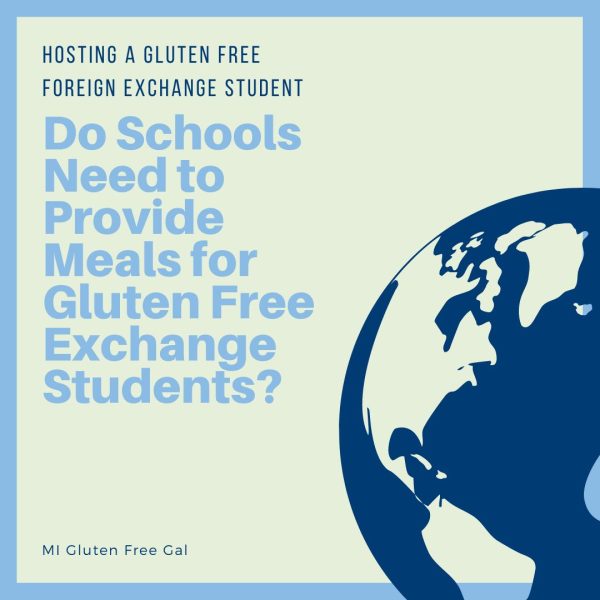
Do Schools Have to Provide Gluten Free Meals to Exchange Students?
It’s also worth investigating how well your local school accommodates students with dietary restrictions. In Michigan, “Schools are required to provide meals that meet allergy restrictions as confirmed by a doctor’s note.
“In addition, the Michigan School Meals program strongly encourages participating schools to offer meals that meet students’ dietary restrictions, including the provision of gluten-free meals, vegetarian meals, vegan meals, and, upon request, kosher meals, and halal meals.” Some schools are better at this than others.
Do Gluten Free Exchange Students Graduate with Their Classmates?
Karen told me the following: The United States doesn’t usually allow exchange students on a J1 visa to receive a diploma. Each student receives a transcript of the class they took while in the US. Not all countries will give students credit for the class work done while here.
This doesn’t mean that they’re not allowed to walk on graduation day. Costs for cap and gown, and senior photos are paid for by the student.
When Do Foreign Exchange Students Return Home?
Karen shared that students usually return within 10 days of the end of the school year. Sometimes there may a grace period, depending on their visa. Students may stay later if their natural parents visit the US and then return home with them. (Parents may not visit until the end of the school year, per US State Dept. guidelines.)
Other Questions?
What other questions do you have about hosting a gluten free foreign exchange student? Add them to the comment section below, and I’ll research them and add them to my post! Have you hosted a gluten free foreign exchange student? Please share your experiences below!
